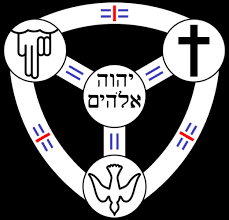So says the learned Peter Leithart in his series of exegetical studies of the Ten Commandments at his Patheos blog. In his post Bearing the Name, Dr. Leithart takes the Hebrew word used in the Commandment, nasa’, and shows how it is used elsewhere in Exodus with a whole range of meanings.
In a physical sense, nasa’ is used to mean bearing or carrying objects such as the furniture of the Tabernacle (Exodus 27-28 and many other places). The word is also used more figuratively, as when Jethro suggests that Moses appoint judges to help him “bear” (nasa’) the burden of leadership (Exodus 18:22).
There is another use of the word in the Ten Commandments: “You shall not bear false witness against your neighbor” (Exodus 20:16). Comments Dr. Leithart: “The text isn’t simply concerned with uttering false reports. The verb suggests its concern is with carrying them about, spreading false reports.”
And God uses nasa’ to describe what He has done for His people: “You yourselves have seen what I did to the Egyptians, and how I bore you on eagles’ wings and brought you to myself” (Exodus 19:4). This use of the word comes closest to the Commandment against bearing God’s name in vain. Dr. Leithart observes,
There is a symmetrical exchange: Yahweh bore Israel from Egypt, so Israel should bear His name well. Being borne places a weight of obligation on Israel, which they have to bear. The borne become bearers. Because Yahweh carried Israel, Israel now carries Yahweh’s reputation/name before the world.
Furthermore, God is said to bear (nasa’) our sins:
Exodus 32:32; 34:7: Moses intercedes for Israel after the golden calf, asking Yahweh to nasa’the sin of Israel. It has the connotation of “carry away” or “remove,” but with the possible overtone of “bear the burden of.” Moses is asking Yahweh to take Israel’s sins on Himself. Yahweh does forgive, since that is essential to the name He proclaims before Moses. He is a God who bears iniquity (34:7). That is the name Israel bears, the name of a God of mercy and justice.
Actually, I would add, the English rendition, established by the King James Version, of “take” is a pretty good reading. It is just that most of us today skim over the literal meaning of that word. When we “take” something that has been given, we receive it and now carry it ourselves. God, in Christ, “takes” our sins. He bears them. He carries them away.
God’s people bear His name. Christians were baptized in, or “into,” “the name of the Father, the Son, and the Holy Spirit.” We have taken His name, and so we bear it, we carry it along with us.
“Taking God’s name in vain” means much more than using bad or irreverent language, though it certainly includes that. It means that someone who bears the name of God treats this status lightly, bringing dishonor to God instead of glorifying Him. Or when someone who bears the name of God exploits that presumption of piety to lie, deceive, and teach falsely.
Luther, who also knew well the Bible in the original languages, conveys just this sense of the Commandment in the Large Catechism:
The greatest abuse [of this commandment] occurs in spiritual matters, which pertain to the conscience, when false preachers rise up and offer their lying vanities as God’s Word.
Behold, all this is decking one’s self out with God’s name, or making a pretty show, or claiming to be right, whether it occur in gross, worldly business or in sublime, subtile matters of faith and doctrine. And among liars belong also blasphemers, not alone the very gross, well known to every one, who disgrace God’s name without fear (these are not for us, but for the hangman to discipline); but also those who publicly traduce the truth and God’s Word and consign it to the devil. (54-55)
Illustration: Shield of the Trinity, with Tetragrammaton [the Hebrew name of God: YHWH + Elohim] by AnonMoos [Public domain], via Wikimedia Commons














